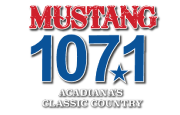Flood Survivors Urged to Avoid Fraud and Other Scams
BATON ROUGE, La. – Louisiana recovery continues with the energy and work of businesses, voluntary, faith-based, and community-based organizations along with government agencies and committed citizens.
Unfortunately, disasters also bring out criminals looking to prey on survivors who appear to be rich targets for their fraudulent services.
Being cautious is essential to preventing rip-offs. Don’t offer personal financial information over the phone. Know who you are dealing with. Never be shy about asking for identification. Government workers will never ask for a fee or payment. They always wear an official government photo ID.
Homeowners and registered FEMA applicants should watch out for housing inspectors claiming to represent FEMA or the U.S. Small Business Administration. Inspectors already have each applicant’s nine-digit registration number and a FEMA inspector will not ask for this number. FEMA inspectors never require banking or other personal information. The job of FEMA housing inspectors is to verify damage. Inspectors do not hire or endorse specific contractors to fix homes or recommend repairs. They do not determine eligibility for assistance.
Watch out for middlemen who promise you will receive disaster grants or money, especially if they ask for an upfront payment.
Many survivors have been living in damaged homes or in hotels and motels or other emergency accommodation while their primary residences are being repaired and rebuilt.
Keep these consumer safety tips in mind when working with contractors:
- Verify the license or registration number with the Louisiana State Licensing Board for Contractors at www.lacontractor.org or call 800-256-1392.
- Get three written estimates for repair work. Then check credentials and contact your local Better Business Bureau or Chamber of Commerce to learn about any complaints against the contractor or business.
- Before work begins, make sure you get a written contract detailing all the work to be performed, the costs, a projected completion date, and how to negotiate changes and settle disputes.
- Louisiana, Attorney General Jeff Landryencourages you to use the following tips:
- Take a picture of your contractor, his/her vehicle, and its license plate.
- Take a picture of the contractor’s business card and his/her driver’s license.
- Photograph or scan his/her contracting license and insurance.
- Photograph or scan the contract made with him/her.
- Photograph or scan all checks and money orders made as payments to the contractor.
- Preserve all these photographs by emailing them to yourself and a trusted companion and/or by saving them in a cloud-based application.
- If you suspect anyone – an inspector, disaster survivor, or someone posing as one of these – of fraudulent activities, call the FEMA toll-free Disaster Fraud Hotline at 866-720-5721 or your local law enforcement officials.
- To report a scam or sign up for consumer alerts, call Louisiana Attorney General Jeff Landry’s Consumer Protection Hotline at 800-351-4889 or visit www.AGJeffLandry.com.
Charity scams take many forms, including emails containing links or attachments that direct users to phishing or malware-infected websites. Donation requests from fraudulent charitable organizations commonly appear after major natural disasters.
US-CERT encourages users to take the following measures to protect themselves:
Review the Federal Trade Commission warning at FTC alert and its information on Charity Scams.
- Do not follow unsolicited web links or attachments in email messages.
- Keep antivirus and other computer software up-to-date.
- Check this Better Business Bureau (BBB) list for helping Louisiana flood victims before making any donations to this cause.
- Verify the legitimacy of any email solicitation by contacting the organization directly through a trusted contact number. You can find trusted contact information for many charities on the BBB National Charity Report Index.
There is no fee to apply for FEMA disaster assistance or to receive it. The only ways to register for FEMA help are to:
- Call 800-621-3362 (TTY: 800-462-7585)
- Visit www.DisasterAssistance.gov or speak to a FEMA employee at a Discovery Recovery Center.
###
FEMA’s mission is to support our citizens and first responders to ensure that as a nation we work together to build, sustain, and improve our capability to prepare for, protect against, respond to, recover from, and mitigate all hazards. Follow us on Twitter at https://twitter.com/femaregion6 and the FEMA Blog at http://blog.fema.gov.
Disaster recovery assistance is available without regard to race, color, religion, nationality, sex, age, disability, English proficiency or economic status.
If you or someone you know has been discriminated against, call FEMA toll-free at 800-621-FEMA (3362). For TTY call 800-462-7585.
The U.S. Small Business Administration (SBA) is the federal government’s primary source of money for the long-term rebuilding of disaster-damaged private property. SBA helps businesses of all sizes, private non-profit organizations, homeowners and renters fund repairs or rebuilding efforts and cover the cost of replacing lost or disaster-damaged personal property. These disaster loans cover losses not fully compensated by insurance or other recoveries and do not duplicate benefits of other agencies or organizations.
For more information, applicants may contact SBA’s Disaster Assistance Customer Service Center by calling (800) 659-2955, emailing [email protected], or visiting SBA’s Web site at www.sba.gov/disaster. Deaf and hard-of-hearing individuals may call (800)877-8339.


